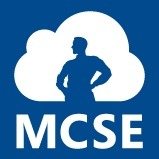by Dmitry Kirsanov
11. September 2012 12:07
 You are probably aware about the new Microsoft’s initiative “Bing it on” – a website, which allows you to query both Google and Bing and see result pages side by side, without telling which is what.
You are probably aware about the new Microsoft’s initiative “Bing it on” – a website, which allows you to query both Google and Bing and see result pages side by side, without telling which is what.
In my case I’ve been sitting at Microsoft and watching people voting for one result page or another, by simply comparing which page looks better. The result was a draw.
However, it was 5 minutes later when I’ve opened both Google and Bing in two tabs and compared results with one simple query – “opensuse”. No, I didn’t think that Microsoft is hiding anything about the newest release of the most successful corporate Linux, it was just the first thing that came to mind.
Results were quite interesting. So interesting, that you can try to do the same right now.
While Google provided me with links to 20 different websites, with opensuse.org being the first one, the Bing gave me a page of 10 links, and all of them led to opensuse.org. So, I can rightfully say that first page contained only one website. Which is whatever you want, but not a draw.
The idea to compare two websites was very good indeed, and too bad that Microsoft will soon have to close it.
by Dmitry Kirsanov
11. September 2012 09:44

When average developer is asked to work on the user interface of his application, he is doing everything that is in his power to not do anything about it.
As the result, we usually get some minor visual enhancements which may further impair usability, but look better during the weekly meeting presentation. In worst case scenario, though, we get something that looks like an echo from 90-s with non-standard windows and 3-D controls. Because your boss is dying to see something “apple style”, and so you deliver. More...
by Dmitry Kirsanov
27. August 2012 05:37
Sometimes I need to copy large files simultaneously to several tens of computers. Like – Hyper-V virtual machines for training courses, and sometimes they take up to 60 Gigabytes. Usually these files reside on a single file server, connected to the local network by 1Gbit NIC, but even if nothing else is taking the bandwidth from that file server, copying 60 Gb to 20 machines would take more than 11 hours – that’s the amount of time it takes to transfer 1200 Gb at the speed of 30 Megabytes per second.
I wanted to reduce the overall time of deployment to about 70-90 minutes, or about 10 times. And this article is about how I’ve accomplished that goal.
More...
by Dmitry Kirsanov
31. July 2012 05:00
A cubic meter of wood weights differently in different parts of the planet. We know it from childhood. What we start to learn later – that it’s the same about your career potential.
Let’s take an example. Mike, an ordinary guy next door, lost his job at the local café shop in England. It wasn’t a lucrative position by any means, but it was a job. When his employer informed him about the forthcoming dismissal, Mike went to state employment services and applied for all kind of allowances he could. He was one of a few hundreds of other guys with the same level of education, skills and knowledge, as well as with the same work experience.
He had to choose the next specialty, which is neither easy or pleasant choice to make, even if someone else is going to fund it. Since he is reading newspapers and talks to friends, he knows that IT is sort of the most stable industry nowadays. He doesn’t feel like he’s able to become a programmer, he is not a geek, so he decided he could go into system administration. Maybe something related to wireless technologies, as it looks to make more buzz in media.
More...
by Dmitry Kirsanov
7. June 2012 07:45
 As you already know, the LinkedIn passwords were supposedly leaked and became available online in form of hashed data. Or they were not, but it doesn’t really matter.
As you already know, the LinkedIn passwords were supposedly leaked and became available online in form of hashed data. Or they were not, but it doesn’t really matter.
What really matters for you as for web developer is to see mistakes of LinkedIn developers and learn from them.
1. Website Performance
When people learned, that their passwords were jeopardized and these passwords could be the keys to other systems as well, they rushed to change the password. All at once. And LinkedIn has about 161 millions of users so far. No, of course there are thousands of dead accounts and people who haven’t heard about the problem yet, but still – many millions of people logged into their accounts, went to the profile settings and started the password changing procedure.
As the result, many people couldn’t do that, because the machines, responsible for that feature, were too busy. If you were among those who tried to change his password the day it hit the news, you could see that Ajax window, saying it’s waiting for the operation to complete. I did it from second attempt, since my password was one year old anyway.
More...
by Dmitry Kirsanov
4. May 2012 19:26
 You’ve already heard about the Windows Phone operating system. Microsoft invested a lot of money into making you hear about it. They are trying to form opinion and clear up the niche for their new attempt to settle in the mobile phone market, and this time it appears like they went for broke.
You’ve already heard about the Windows Phone operating system. Microsoft invested a lot of money into making you hear about it. They are trying to form opinion and clear up the niche for their new attempt to settle in the mobile phone market, and this time it appears like they went for broke.
It’s not only huge resources spent on all sorts of advertisements, but also the unusual amount of FUD in their pitch. One of such arguments that riveted my attention is that iPhone is a glamorous gadget for non-geeks. If you believe it, then this article is for you. More...
by Dmitry Kirsanov
1. May 2012 18:03
 Have you ever heard about ReactOS? It’s an operating system which was in “alpha” state for the last 16 years (!) and is basically a free, open-source Windows clone. It looks just like Windows XP / 2003, but the code base is written from scratch. However, the software written for Windows should work just fine on ReactOS. That’s the goal, at least. For now, applications like WinAmp and uTorrent work stable on current release.
Have you ever heard about ReactOS? It’s an operating system which was in “alpha” state for the last 16 years (!) and is basically a free, open-source Windows clone. It looks just like Windows XP / 2003, but the code base is written from scratch. However, the software written for Windows should work just fine on ReactOS. That’s the goal, at least. For now, applications like WinAmp and uTorrent work stable on current release.
Just about now the founder of this project, Aleksey Bragin, sent an e-mail claiming he is fundraising to actually hire full time developers for his OS. Until now it was a hobby for everyone, but now he is about to make it real. Taking into account that his goal is quite modest 30 000 euro, I think he’ll make it in no time, so the only question that is left open – what’s next?
Either he is going to ship this OS (to potentially free millions of PCs from the inevitable upgrade of Windows XP), or he wants to rise the price of the project to sell it. In a latter case, the question is who would buy it – would it be some social network, financially capable to have a pet operating system, or would it be some ill management addict company, which is buying new projects and technologies to substitute previously acquired and dying ones?
More questions than answers, but anyway, I wish these guys a well deserved success.
by Dmitry Kirsanov
24. April 2012 05:20
 There are two kinds of bloggers. The ones who edit their works offline and the ones who prefer to do it online (or just don’t know they could do it the other way).
There are two kinds of bloggers. The ones who edit their works offline and the ones who prefer to do it online (or just don’t know they could do it the other way).
Also, there are bloggers who don’t know that they are bloggers. Some websites are built on blog engines, as blog platforms are basically article-optimized CMS systems. For example, the BlogEngine.NET home page is built over their own blog platform.
This article is a comparison of two most widely used vital tools of modern blogging – the Microsoft Live Writer 2011 and MarsEdit 3.5 by Red Sweater Software.
More...
by Dmitry Kirsanov
20. April 2012 06:41
A few days ago Microsoft released beta of their new technology called User Experience Virtualization, or UE-V. The name implies that it has something to do with virtualization, but it’s just a buzzword. What UE-V does – it synchronizes user settings across workstations, in real time.
Imagine, that you have to log into multiple workstations, and what you want to have is the same settings of all applications you are using in your work. For example, spelling options in Microsoft Office, the layout of buttons, menus and colors – all the little pains that accumulates into the strong headache of roaming for some.
UE-V vs. roaming profiles
The roaming profile could be the answer, but for most of us it’s not. Some of us don’t even have the Active Directory profiles, but still desire the same user experience throughout the environment (translation to human language: every desktop of yours looks and behaves the same).
The difference with roaming is also in fact that in UE-V you only synchronize what you want to, not everything. So it works faster and has less space for errors.
More...
by Dmitry Kirsanov
19. April 2012 09:45
 With a catch. The topmost certification for windows system administrators, the MCSE (Microsoft Certified Systems Engineer) got new name, while keeping the old abbreviation. Now it’s called Microsoft Certified Solutions Expert.
With a catch. The topmost certification for windows system administrators, the MCSE (Microsoft Certified Systems Engineer) got new name, while keeping the old abbreviation. Now it’s called Microsoft Certified Solutions Expert.
No. Sorry. In fact, Microsoft created brand new certification, mixed products with the cloud and gave it the acronym of the most successful Microsoft’s certification, coincidentally abandoned since 2003. More...